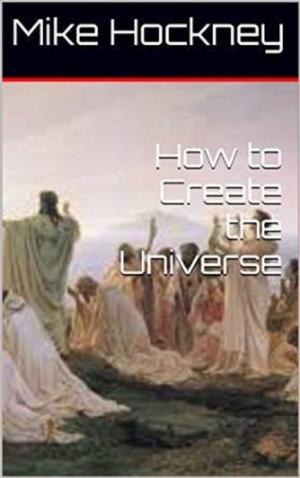| Author: | Mike Hockney | ISBN: | 9781310892707 |
| Publisher: | Mike Hockney | Publication: | May 1, 2016 |
| Imprint: | Smashwords Edition | Language: | English |
| Author: | Mike Hockney |
| ISBN: | 9781310892707 |
| Publisher: | Mike Hockney |
| Publication: | May 1, 2016 |
| Imprint: | Smashwords Edition |
| Language: | English |
There are two kinds of intellectual: Philosophers and Sophists. The former seek the absolute truth while the latter seek the “practical” truth that brings them worldly prestige and success.
The Philosophers develop positions that rely on the highest intelligence and are as far removed as possible from the “common sense” of the mob. The common herd hold Philosophers in more or less complete contempt. The greatest Philosopher of all was Leibniz, a man unknown to the general public, and relatively obscure even within intellectual circles.
Sophists are those who are forever invoking common sense arguments, making direct appeals to the mob, producing arguments based on sensory “evidence” (which they regard as unarguable truth rather than highly arguable interpretation), and who rubbish all reference to an invisible noumenal world of things in themselves underlying the phenomenal world of appearances. Precisely for these reasons, the weak-minded are far more influenced by Sophists than Philosophers, to the severe detriment of the intellectual progress of humanity.
Philosophers have a position based on rationalism, idealism, metaphysics and mathematics, while Sophists hold a position reflecting empiricism, materialism, physics and science.
One of the most prominent Sophists in today’s world is Sam Harris, an American controversialist who supports scientism, atheism, and the claim that free will is illusory. All of his positions are closely connected, and the purpose of this book is to expose the fallacies that lie at the heart of the Sophists’ worldview, and Harris’s in particular.
Ultimately, the difference between Philosophy and Sophistry reduces to the difference between mathematics and science, and how each relates to ultimate reality.
There are two kinds of intellectual: Philosophers and Sophists. The former seek the absolute truth while the latter seek the “practical” truth that brings them worldly prestige and success.
The Philosophers develop positions that rely on the highest intelligence and are as far removed as possible from the “common sense” of the mob. The common herd hold Philosophers in more or less complete contempt. The greatest Philosopher of all was Leibniz, a man unknown to the general public, and relatively obscure even within intellectual circles.
Sophists are those who are forever invoking common sense arguments, making direct appeals to the mob, producing arguments based on sensory “evidence” (which they regard as unarguable truth rather than highly arguable interpretation), and who rubbish all reference to an invisible noumenal world of things in themselves underlying the phenomenal world of appearances. Precisely for these reasons, the weak-minded are far more influenced by Sophists than Philosophers, to the severe detriment of the intellectual progress of humanity.
Philosophers have a position based on rationalism, idealism, metaphysics and mathematics, while Sophists hold a position reflecting empiricism, materialism, physics and science.
One of the most prominent Sophists in today’s world is Sam Harris, an American controversialist who supports scientism, atheism, and the claim that free will is illusory. All of his positions are closely connected, and the purpose of this book is to expose the fallacies that lie at the heart of the Sophists’ worldview, and Harris’s in particular.
Ultimately, the difference between Philosophy and Sophistry reduces to the difference between mathematics and science, and how each relates to ultimate reality.















